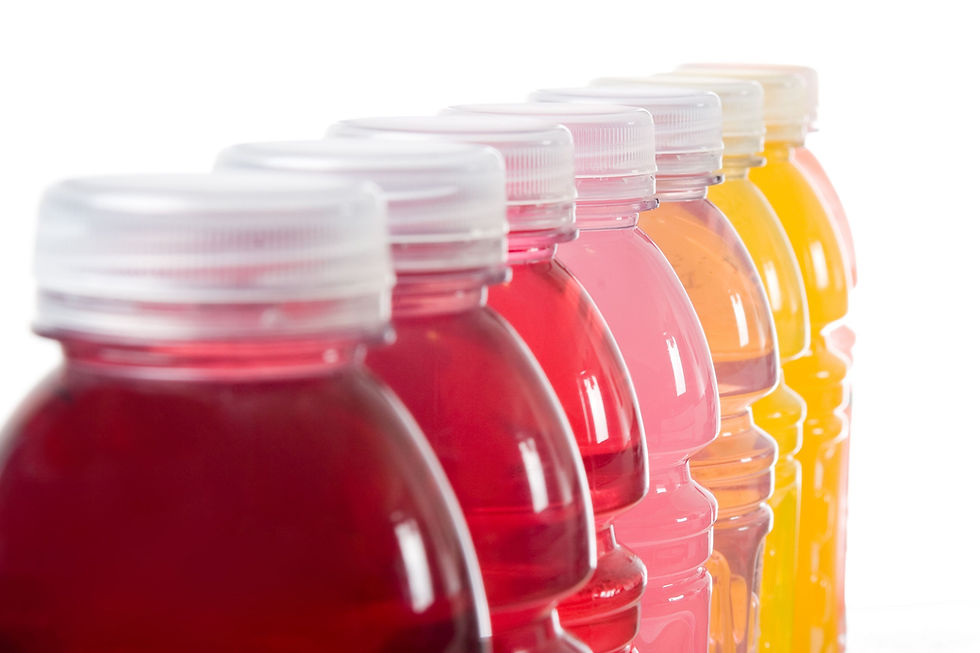What Are The Effects Of Dehydration From Flying And How To Prevent Them?
- jenathorpes
- Jul 17, 2023
- 3 min read

Flying can be an exciting and convenient way to travel, but it can also have some negative effects on our bodies, particularly in terms of dehydration. Dehydration from flying occurs due to low humidity levels in the aircraft cabin, which can lead to various health issues. In this article, we will explore the effects of dehydration from flying and discuss some preventive measures to ensure a comfortable and safe journey.
Understanding Dehydration From Flying:
Dehydration is a condition that arises when your body loses more fluids than it takes in. The dry environment inside an aircraft cabin, combined with the high altitude, can significantly contribute to dehydration during a flight. The low humidity levels on planes can cause increased fluid evaporation from the body, leading to potential health problems.
Effects Of Dehydration From Flying:
Dry Skin and Lips: One of the noticeable effects of dehydration during a flight is dry skin and lips. The lack of moisture in the air can make your skin feel tight, itchy, and even cause chapped lips. It is essential to keep your skin moisturized throughout the flight to prevent discomfort.
Fatigue and Drowsiness: Dehydration can also result in fatigue and drowsiness, making long flights feel even more tiring. When your body lacks adequate fluids, it affects your energy levels and can make you feel lethargic. Staying hydrated is crucial for maintaining alertness and combating fatigue.
Headaches and Dizziness: Dehydration can trigger headaches and dizziness, which can make your flying experience unpleasant. These symptoms occur due to the reduced blood volume and oxygen flow to the brain. Drinking enough water can help alleviate these discomforts.
Dry Eyes and Irritation: The dry air in the aircraft cabin can cause dry eyes and eye irritation. It can lead to redness, itching, and a burning sensation. Using lubricating eye drops can provide relief and keep your eyes moist.
Digestive Issues: Dehydration can affect your digestive system, leading to issues such as constipation and stomach discomfort. It is crucial to stay hydrated and consume fluids regularly to prevent these problems.
Weakened Immune System: Dehydration weakens the immune system, making you more susceptible to illnesses. In a confined space like an airplane, where you are exposed to many people and their potential germs, it is essential to keep your immune system strong by staying hydrated.
Preventive Measures For Dehydration From Flying:
Drink Plenty of Water: post workout drink recovery to prevent dehydration during a flight is to drink an adequate amount of water. Make sure to continuously sip on water throughout the journey and avoid excessive intake of caffeinated or alcoholic beverages, as they can further contribute to dehydration.
Use Hydrating Skincare Products: Applying moisturizing lotions and lip balms can help combat dry skin and lips. Look for products with hydrating properties and apply them before and during the flight to keep your skin and lips moisturized.
Avoid Excessive Alcohol and Caffeine: Alcohol and caffeinated beverages can dehydrate your body, so it's best to avoid them or consume them in moderation during the flight. Opt for water or herbal tea instead, which will help keep you hydrated.
Humidify the Air: Some travelers find it beneficial to use a personal humidifier or nasal spray to add moisture to the air they breathe. These products can help prevent the drying effects of the cabin's low humidity levels.
Opt for Hydrating Foods: Include hydrating foods in your pre-flight and in-flight meals. Fruits and vegetables with high water content, such as watermelon, cucumbers, and oranges, can contribute to your overall hydration.
Take Breaks and Stretch: During long flights, make sure to take breaks, walk around the cabin, and stretch your body. Movement helps improve blood circulation and prevents fluid retention, which can aid in combating dehydration.
Conclusion:
Dehydration from flying can cause various discomforts and health issues, but by taking proactive measures, you can prevent these problems and have a more pleasant travel experience. Remember to drink plenty of water, use hydrating skincare products, avoid excessive alcohol and caffeine, humidify the air, choose hydrating foods, and take breaks to stretch. By prioritizing hydration, you can ensure a more comfortable and healthier journey.



Comments